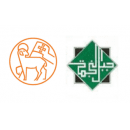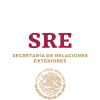Program Midterm Evaluator
الوصف الوظيفي
لقد انتهت صلاحية هذه الوظيفة في 2018-09-15
تصفح أحدث الوظائف
عند التقدم لاية وظيفة عن طريق الانترنت، لا تقم بإعطاء معلومات بطاقة الأعتماد او أية معلومات بنكية / مالية لصاحب عمل. نصيحة من جوبس لحمايتك :
آخر الوظائف المعلنة بواسطة
مركز جبل النجمة للتأهيل Star Mountain
المسمى الوظيفي
تاريخ النشر
منسقي مشاريع
رام الله والبيرة
7, Oct, 2024
منسقة حضانة أطفال دامجة
رام الله والبيرة
7, Oct, 2024
موظف تأهيل
رام الله والبيرة
7, Oct, 2024
مستشار\ة الاتصال والاعلام
رام الله والبيرة
4, Jul, 2024
معلمة حضانة ورياض أطفال
رام الله والبيرة
13, Feb, 2024
موظف/ة تأهيل في برنامج التدريب المهني
رام الله والبيرة
13, Feb, 2024
معلمة تربية فنية وحرف وأشغال يدوية
رام الله والبيرة
28, Sep, 2023
معلمة حضانة ورياض أطفال
رام الله والبيرة
13, Sep, 2023









